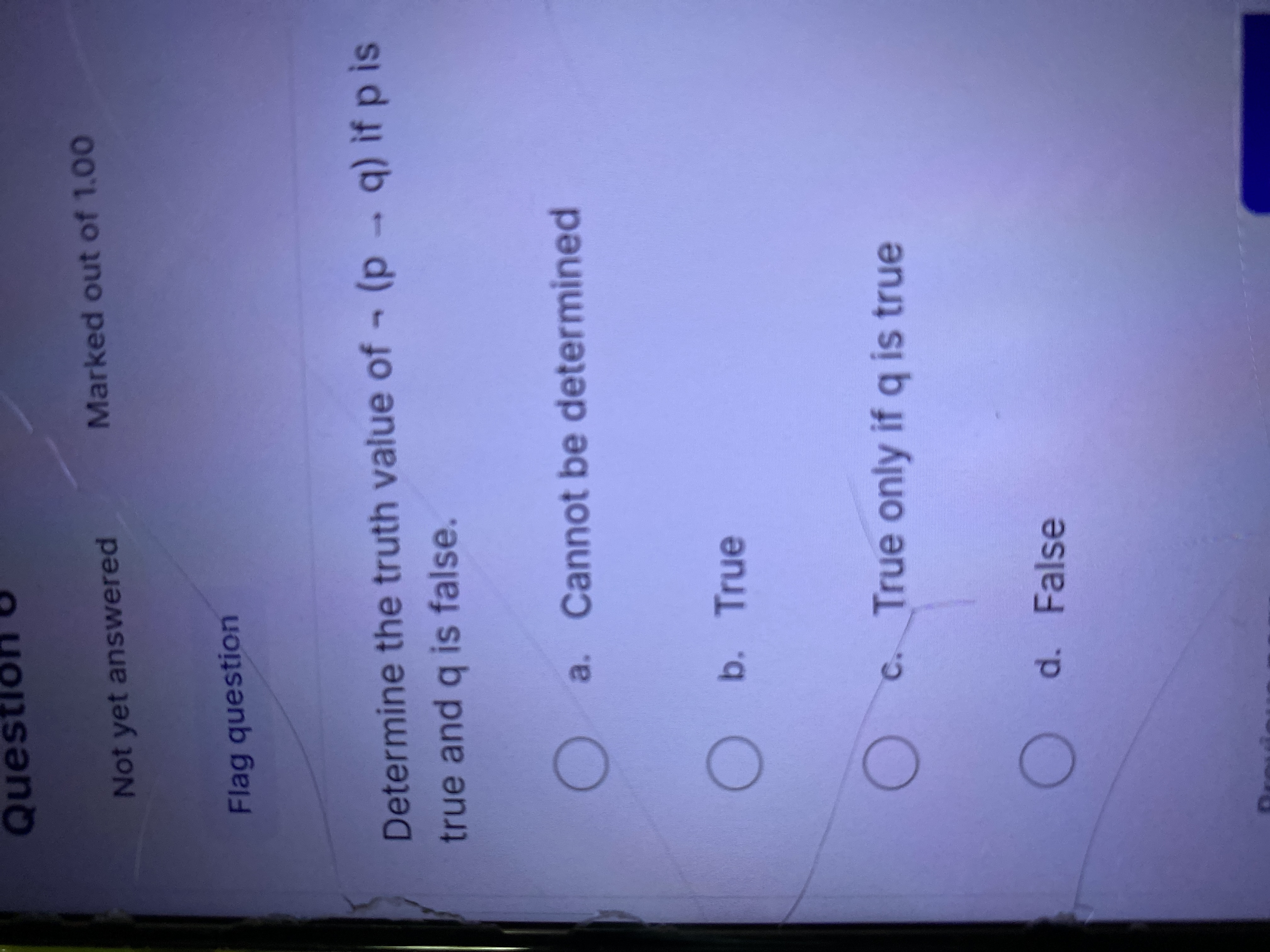Determine the truth value of ¬(p → q) if p is true and q is false.

Understand the Problem
The question is asking for the truth value of the logical expression ¬(p → q) given the conditions that p is true and q is false. It requires knowledge of logical operations and their implications.
Answer
True
Answer for screen readers
The truth value of the expression ¬(p → q) is $True$.
Steps to Solve
-
Understand the expression We need to find the truth value of the expression ¬(p → q). The antecedent and consequent are provided: $p$ is true, and $q$ is false.
-
Identify the implication Calculate the implication $p → q$. The implication can be defined as: $$ p → q = \neg p \lor q $$ Since $p$ is true and $q$ is false, we have: $$ p → q = \neg \text{true} \lor \text{false} = \text{false} $$
-
Negate the implication Now, we need to negate the result of the implication: $$ ¬(p → q) = ¬\text{false} = \text{true} $$
-
Conclusion The truth value of the expression ¬(p → q) is true.
The truth value of the expression ¬(p → q) is $True$.
More Information
In propositional logic, the implication $p → q$ is only false when $p$ is true and $q$ is false. Negating this result leads us to conclude that ¬(p → q) is true in this scenario.
Tips
- Misunderstanding the implication: Some may incorrectly interpret $p → q$ as being true when both $p$ and $q$ are true, forgetting it can also be false if $p$ is true and $q$ is false.
- Negating incorrectly: Not realizing that negating a false statement results in a true statement.
AI-generated content may contain errors. Please verify critical information